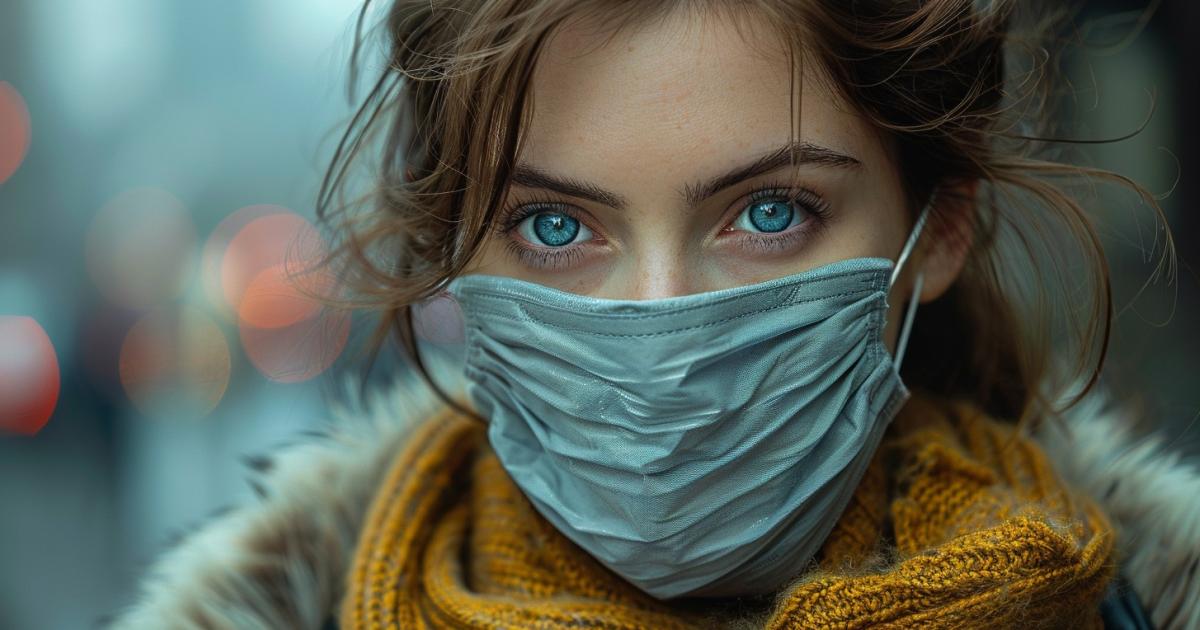Why do some people never get COVID-19?

Have you managed to avoid the coronavirus yet? The COVID-19 pandemic spread rapidly across the world in late 2019, infecting millions of people, causing a flood of new deaths, and profoundly changing the way we live. Even today, we continue to see new outbreaks of the virus. thanks to its new variants, but despite the fact that the emergency situation has ended, the virus continues and will continue to circulate among us (and will not stop doing so in the near future). However, against the backdrop of the staggering number of infected, a curious phenomenon is observed: some people have never had COVID-19; They remain immune to the virus despite being exposed to it again and again.
World Health Organization The total number of confirmed cases was recently reported to be more than 775 million, including more than seven million deaths worldwide.
Why do some people never get COVID-19?
Why are there people who don’t get infected?
A new study published in the journal Naturedefined Possible reason for which there are people who, no matter how much they are exposed to the virus, never become infected by it: a specific gene that demonstrates an immune response, recently discovered by scientists.
During their study, the experts deliberately infected a group of volunteers (36 people) with the SARS-CoV-2 coronavirus. None of the volunteers had previously been exposed to the virus or vaccinated. The secret lies in human leukocyte antigen (HLA), or protein markers that send signals to the immune system. They found that participants with high activity of a little-studied immune gene called HLA-DQA2 They did not develop a persistent infection after exposure to the virus. This is a still unknown immune system response to the coronavirus. Variations in this response may explain why some people get sick and others do not.

The Magic of T Cells
It’s unclear how many people have escaped Covid, but the latest estimates from the US Centers for Disease Control and Prevention suggest that by the end of 2022, nearly one in four Americans will not have contracted the virus.
Of the 36 study participants, seven people have never tested positive for the virus and three had a transient nasal infection that lasted only a short time and never got sick.
It turns out that a mutation in one of the genes encoding HLA helps virus-killing T cells identify SARS-CoV-2 and launch a blitzkrieg, even though they’ve never detected it before, because it’s so similar to the seasonal cold virus that the body, or more specifically, our immune system, knows about.
“If you have an army that can recognize the enemy early, that’s a huge advantage,” explained the study’s principal investigator, Jill Hollenbach, a professor of neurology and of epidemiology and biostatistics and a member of the Weil Institute for Neuroscience at UCSF. “It’s like soldiers who are ready to fight and already know what to look for and that these are the bad guys.”
Pandemic
Quick response
People who are temporarily infected develop a strong immune response in their nose the day after infection, known as the interferon response, which acts as a viral alarm to the body and recruits cells to fight the infection. “Your immune system can sense this. something is happening and transmit it into the body before the truly affected cells notice it,” experts say.
What is clear is that a group of volunteers who had never been sick, All of them showed increased activity of the HLA-DQA2 gene in specialized immune cells. which, as we have seen, help alert the immune system to pathogens.
In those who did get sick, the immune response was significantly slower. It took at least five days for the interferon reaction to occur, giving the virus more than enough time to replicate and spread throughout the body.
The study provides the first evidence that there is a genetic basis for asymptomatic SARS-CoV-2 infection.
“We will be able to predict who is susceptible to infection just by looking at genetic signature of this gene “in particular,” said Akiko Iwasaki, an immunologist at Yale University who was not involved in the study but wrote about the research in the journal. Nature.
Researchers hope that by better understanding early immune responses, it will help develop nasal spray forms of coronavirus vaccines similar to those given to prevent infection. flu (also known as the influenza virus).
The study helps solve the mystery of why some people can become infected without actually getting COVID-19.
References:
- R.G. Lindeboom et al. Human infection with SARS-CoV-2 reveals the dynamics of local and systemic responses. Nature. Published online June 19, 2024. doi: 10.1038/s41586-024-07575-x.
- World Health Organization
- Augusto DG, Murdolo LD, Shatzileontiadou DSM, et al. A common HLA allele is associated with asymptomatic SARS-CoV-2 infection. Nature, 2023. DOI: 10.1038/s41586-023-06331-x
- B. Israelov and A. Iwasaki. First encounter with SARS-CoV-2: immune portraits of COVID susceptibility. Nature. Published online June 19, 2024. doi: 10.1038/d41586-024-01644-x.

